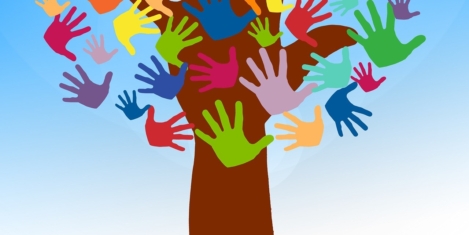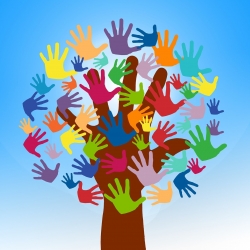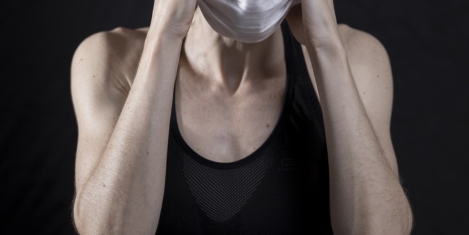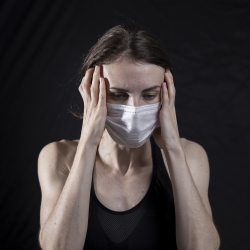To provide the best experiences, we use technologies like cookies to store and/or access device information. Consenting to these technologies will allow us to process data such as browsing behaviour or unique IDs on this site. Not consenting or withdrawing consent, may adversely affect certain features and functions.
The technical storage or access is strictly necessary for the legitimate purpose of enabling the use of a specific service explicitly requested by the subscriber or user, or for the sole purpose of carrying out the transmission of a communication over an electronic communications network.
The technical storage or access is necessary for the legitimate purpose of storing preferences that are not requested by the subscriber or user.
The technical storage or access that is used exclusively for statistical purposes.
The technical storage or access that is used exclusively for anonymous statistical purposes. Without a subpoena, voluntary compliance on the part of your Internet Service Provider, or additional records from a third party, information stored or retrieved for this purpose alone cannot usually be used to identify you.
The technical storage or access is required to create user profiles to send advertising, or to track the user on a website or across several websites for similar marketing purposes.
 Hardworking professionals are feeling the effects of longer working days and unpaid overtime, according to new research by law firm, Wright Hassall. The study claims that on average workers are performing nine or more hours of overtime in a given week, which totals more than one working day, compared to just three or more hours before the start of the pandemic. The research also claims that more than half (52 percent) are actually doing so without being paid for this. More →
Hardworking professionals are feeling the effects of longer working days and unpaid overtime, according to new research by law firm, Wright Hassall. The study claims that on average workers are performing nine or more hours of overtime in a given week, which totals more than one working day, compared to just three or more hours before the start of the pandemic. The research also claims that more than half (52 percent) are actually doing so without being paid for this. More →





 As companies struggle to motivate teams working remotely, new research by the charity
As companies struggle to motivate teams working remotely, new research by the charity 
 Organisations face a crisis of trust this year if they continue to make workplace decisions in the dark, according to employee experience platform,
Organisations face a crisis of trust this year if they continue to make workplace decisions in the dark, according to employee experience platform, 
 Financial distress is more damaging to the wellbeing of the self-employed than those in employment, claims new research from
Financial distress is more damaging to the wellbeing of the self-employed than those in employment, claims new research from 


 No-one could have predicted what 2020 would deliver. A pandemic, lockdown, moving the workplace into the home. We are in uncharted waters. The Oxford English Dictionary defines resilience as being able to withstand or recover quickly from difficult conditions. Resilience is an almost stoic quality, and a pandemic a time of crisis. It almost feels like they are a match made in heaven. But how does this affect organisations? What can be done? Is it really that important to build employees’ resilience?
No-one could have predicted what 2020 would deliver. A pandemic, lockdown, moving the workplace into the home. We are in uncharted waters. The Oxford English Dictionary defines resilience as being able to withstand or recover quickly from difficult conditions. Resilience is an almost stoic quality, and a pandemic a time of crisis. It almost feels like they are a match made in heaven. But how does this affect organisations? What can be done? Is it really that important to build employees’ resilience? 
 Data from thousands of employees across the country has been aggregated in a new report, detailing the mental wellbeing of the workforce over the course of the year. The research from
Data from thousands of employees across the country has been aggregated in a new report, detailing the mental wellbeing of the workforce over the course of the year. The research from 
 A review of research in organisational and workplace psychology conducted by an international team of academics claims that working from home has been more disruptive for women than men. The review paper, entitled
A review of research in organisational and workplace psychology conducted by an international team of academics claims that working from home has been more disruptive for women than men. The review paper, entitled 
 With the continuous impact of the pandemic on people’s mental health due to isolation, work uncertainty, and anxiety over health, the topic has been dominating the news, begging the question of how we can achieve accessible and cost-effective treatment for all and prevent the expected acceleration of mental health issues in the coming months. As we juggle a different type of work-life balance brought about by working from home and the added worry of how the pandemic is affecting us, there is no doubt that our daily lives have been disrupted. The statistics are alarming;
With the continuous impact of the pandemic on people’s mental health due to isolation, work uncertainty, and anxiety over health, the topic has been dominating the news, begging the question of how we can achieve accessible and cost-effective treatment for all and prevent the expected acceleration of mental health issues in the coming months. As we juggle a different type of work-life balance brought about by working from home and the added worry of how the pandemic is affecting us, there is no doubt that our daily lives have been disrupted. The statistics are alarming; 
 To say that 2020 has been a tough year is an understatement, and it appears that there has been an increase in the amount of alcohol being consumed whilst working from home since the pandemic began, according to Health and Safety software company
To say that 2020 has been a tough year is an understatement, and it appears that there has been an increase in the amount of alcohol being consumed whilst working from home since the pandemic began, according to Health and Safety software company 
 Hardworking professionals are feeling the effects of longer working days and unpaid overtime, according to new research by law firm,
Hardworking professionals are feeling the effects of longer working days and unpaid overtime, according to new research by law firm, 













January 11, 2021
Your organisation really needs to stop talking about a second pandemic
by Stephanie Fitzgerald • Comment, Wellbeing